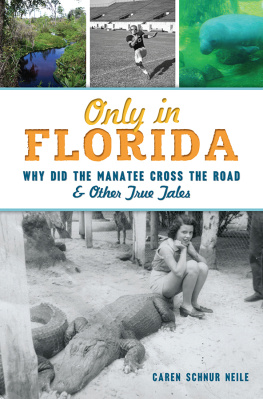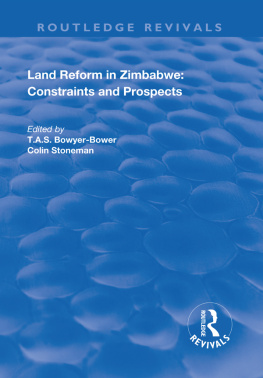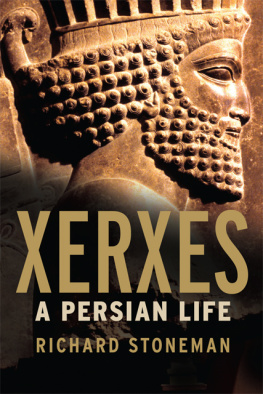MARJORY STONEMAN
DOUGLAS

VOICE
of the RIVER
Books by Marjory Stoneman Douglas
Adventures in a Green World:
David Fairchild and Barbour Lathrop1973
Florida: The Long Frontier1967
Alligator Crossing1959
Hurricane1958
Freedom River1953
Road to the Sun1952
The Everglades: River of Grass1947
(Revised 60th Anniversary Edition 2007)
VOICE
of the RIVER

An Autobiography by
Marjory Stoneman Douglas
with John Rothchild
MARJORY
STONEMAN
DOUGLAS

Copyright 1987, 2011 by John Rothchild
All rights reserved. No part of this book may be reproduced in any form or by any means, electronic or mechanical, including photocopying, recording, or by any information storage and retrieval system, without permission in writing from the publisher.
Inquiries should be addressed to:
Pineapple Press, Inc.
P.O. Box 3889
Sarasota, Florida 34230
www.pineapplepress.com
Library of Congress Cataloging-in-Publication Data
Douglas, Marjory Stoneman.
Marjory Stoneman Douglas: voice of the river.
1. Douglas, Marjory Stoneman. 2. ConservationistsFloridaBiography. I. Rothchild, John. II. Title.
QH31.D645A3 1987 333.720924 [B] 87-2242
ISBN 0-910923-33-7: (hb.) ISBN 0-910923-94-9 (pbk.)
ISBN-13 (Hb): 978-0-910923-33-0
ISBN-13 (Pb): 978-0-910923-94-1
First Edition
Hb: 12 11 10 9 8 7 6 5 4
Pb: 15 14 13 12 11 10
Design by Frank Cochrane Associates, Sarasota, Florida
Typography by Lubin Typesetting and Literary Services, Sarasota, Florida
Printed in the United States of America
To Massachusetts, with love
Acknowledgments
Special thanks to: Joette Lorion; June and David Cussen; Don DeHut; Joe Browder; Mildred Merrick; Beth Dunlop; Linda Hardin; Christine Bell; Michelle Kavanaugh; Pat Tucker; Donald Klein and the law firm of Kline, Moore, and Klein; Susan Rothchild; Florida International Realty; Jennifer Krugman; and the following members of the Coral Gables High School National Honor Society: Vanessa Barton, Sara Espinosa, Marc Camacho, Alan Obregon, George Healy, Gloria Gonzalez, Andrea Rose, Dan Nicholls, Santiago Gato, Elena Figueroa, Reed Martin, and Mitchell Lysinger.
Contents
Introduction:
Notes from a Fan
by John Rothchild
The first time I saw Marjory Stoneman Douglas was in the gymnasium of the Everglades City school. It was 1973, sometime in late summer, known locally as the mosquito season. An incredible optimist in this town of 100 stone crabbers and a handful of odd Yankees, lost in the fog of mosquitoes at the edge of the Everglades National Park, had proposed to build a suburb. The optimist needed a bridge permit, which was the subject of this public hearing, sponsored by the U.S. Army Corps of Engineers.
The suburb idea stirred up environmentalists from both sides of the state, and they were fighting the bridge permit. We townspeople, most of us opposed to the development ourselves, were delighted when Mrs. Douglas appeared in her famous floppy hat. Wed heard that this powerful woman, old enough to be prehistoric by Florida standards, would not allow any suburbs in the Everglades. In fact, it was rumoured that shed more or less created the Everglades and was as fiercely protective as a parent for a child. I imagined her to be some sort of cross between Mother Teresa, Clare Boothe Luce, Rachel Carson, Athena, and Golda Meir. Somebody drove her out here all the way from Miami, an hour and a half and several decades of progress away.
There was no air-conditioning in the gymnasium and no screens on the windows. Whoever was in charge of matters of life and death had decided that heat was more threatening than bugs, so the windows and doors were left open. The audience slapped and scratched sitting down as the various speakers slapped and scratched standing up. One environmentalist after another described the fragility of nature, the subtle ecosystems of the Everglades, while attackers from the ecosystem buzzed around their ears until they could scarcely keep track of their thoughts.
Mrs. Douglas was half the size of her fellow speakers and she wore huge dark glasses, which along with the huge floppy hat made her look like Scarlett OHara as played by Igor Stravinsky. When she spoke, everybody stopped slapping and more or less came to order. She reminded us all of our responsibility to nature and I dont remember what else. Her voice had the sobering effect of a one-room schoolmarms. The tone itself seemed to tame the rowdiest of the local stone crabbers, plus the developers, and the lawyers on both sides. I wonder if it didnt also intimidate the mosquitoes. What impressed me most is that Mrs. Douglas never needed to slap. At least, I never saw her slap. The request for a Corps of Engineers permit was eventually turned down. This was no surprise to those of us whod heard her speak.
At the time of the meeting in the gymnasium, Mrs. Douglas was 83. I considered it a privilege to have witnessed Floridas greatest defender of the environment in the last stage of her long and exciting career. How ignorant can you get. It turns out this was the beginning of a long and exciting career. Mrs. Douglas wasnt fully activated as an environmentalist until she was 79. As shes gone on considerably from there, the speech I heard should be taken as one of her premature efforts. Shes done more flying around the country, issuing press releases, lobbying in Tallahassee, campaigning against developers and hunters, speaking for the panthers and the birds, the mangroves and the wetlands, the Kissimmee River and the Everglades, as a 90-year-old than she did as an 80-year-old, while as a 70-year-old she was busy writing books.
In fact, Mrs. Douglas has had several careers, though this is easily overlooked since her efforts as a 90-year-old represent the work of a normal complete existence. This is embarassing for the allegedly active 40-year-old to contemplate, but its true. Mrs. Douglas, moreover, does not ascribe anything to magic. As she explains in the pages that follow, life for any 80-year-old can be healthy and productive, but you have to take care of yourself and avoid indolence and self-indulgence, so youll be even healthier and more productive in your nineties.
After that meeting in the Everglades, the next news of Mrs. Douglas came to me unexpectedly through the breezes. That is, my family and I wanted to build a sensible Florida house that was open to the breezes, avoiding the expense of an air conditioner. A sensible house was such an unpopular prospect that hardly an architect within 500 miles would consider designing one, any more than theyd draw a plan for a teepee or a yurt. At last we found a sympathetic architect in Marion Manley, an octogenarian whod moved to Miami long before air-conditioning, early enough to remember the hurricane of 1926, as well as all the lesser breezes. She also remembered Mrs. Douglas.
Of course Marion Manley had to have known Marjory Stoneman Douglas. How could they have avoided each other two free thinkers among the few thousand real-estate crazed South Florida inhabitants in the 1920s? Ms. Manley told me the juicy gossip, how Mrs. Douglas arrived in Miami in 1915 to move in with her father, and, horror of horrors, to get a divorce. Her father, Frank Stoneman, was the founder and editor of the Miami
Next page












